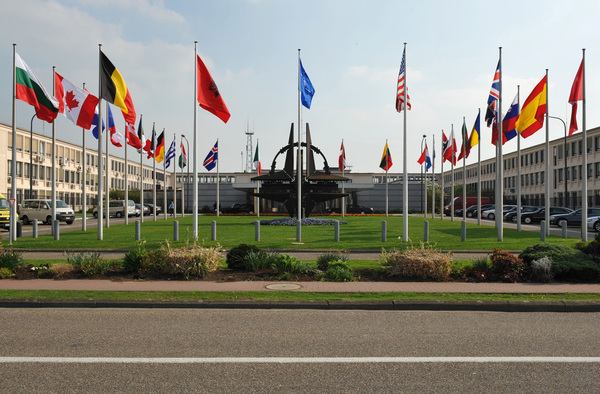
From Daniel Nexon, the Duck of Minerva: [C]urrent defense cuts make clear NATO’s ongoing importance to Europe. By co-binding virtually the entire Atlantic and European Community, whether through direct NATO integration or the Partnership for Peace (PfP) program, NATO has created an unprecedented security community. Every major power (save one) on the continent has interoperable military forces linked together via multiple consultative and coordinative mechanisms. As Walt’s students correctly noted, NATO has greatly diminished the likelihood of security dilemmas, arms races, and military instability within its borders.
NATO not only plays a key role in mitigating the pathologies realists associate with anarchy, it also continues to serve a deterrence function–most notably with respect to the Russian Federation. NATO membership, or lack thereof, makes a major difference to the strategic environment faced by former members of the Warsaw Pact and the Soviet Union. Moscow would, for instance, enjoy significantly more influence Estonia, Latvia, and Lithuania if the three had remained outside the alliance.
NATO security guarantees also structure, for the better, current European and US engagement with Moscow. They have done so not only by, for all intents and purposes, eliminating the threat posed by Russia to the most forward-looking NATO advocates of extensive political-military engagement with Moscow (e.g., Germany and France), but also by reducing Moscow’s ability to play divide-and-conquer games in Europe. It isn’t so much that Moscow doesn’t play those games now (it does), or that it hasn’t enjoyed important successes in doing so (it has). Rather, without NATO’s co-binding institutions and practices, Moscow’s wedge strategies might well be pulling Europe apart.
Although it may seem somewhat paradoxical, this state of affairs has been a net positive for the Russian Federation. A more realpolitik environment in Europe, even one driven, in part, by Moscow’s power-political influence, would greatly undermine Russian military and economic security. Indeed, Russia’s long-term ability to meet the challenges posed by a rising China depends on stable, predictable, and friendly relations with its major western neighbors. …
[I]t should be obvious that NATO profoundly structures Eurasian political and military relations, and will still do so even if its ability to act collectively further declines. Whether or not one agrees with my assessment of how NATO structures Russia’s strategic opportunities, it strikes me as difficult to argue that NATO’s impact on western Eurasia has no significance for the future of East Asian security relations. At the very least, it does so not only by shaping the political, military, and economic environment confronting Moscow, but also that of policymakers in Washington, DC.
Daniel Nexon is an Associate Professor at Georgetown University’s School of Foreign Service. (via Daniel Drezner)
Image: nato10.jpg
